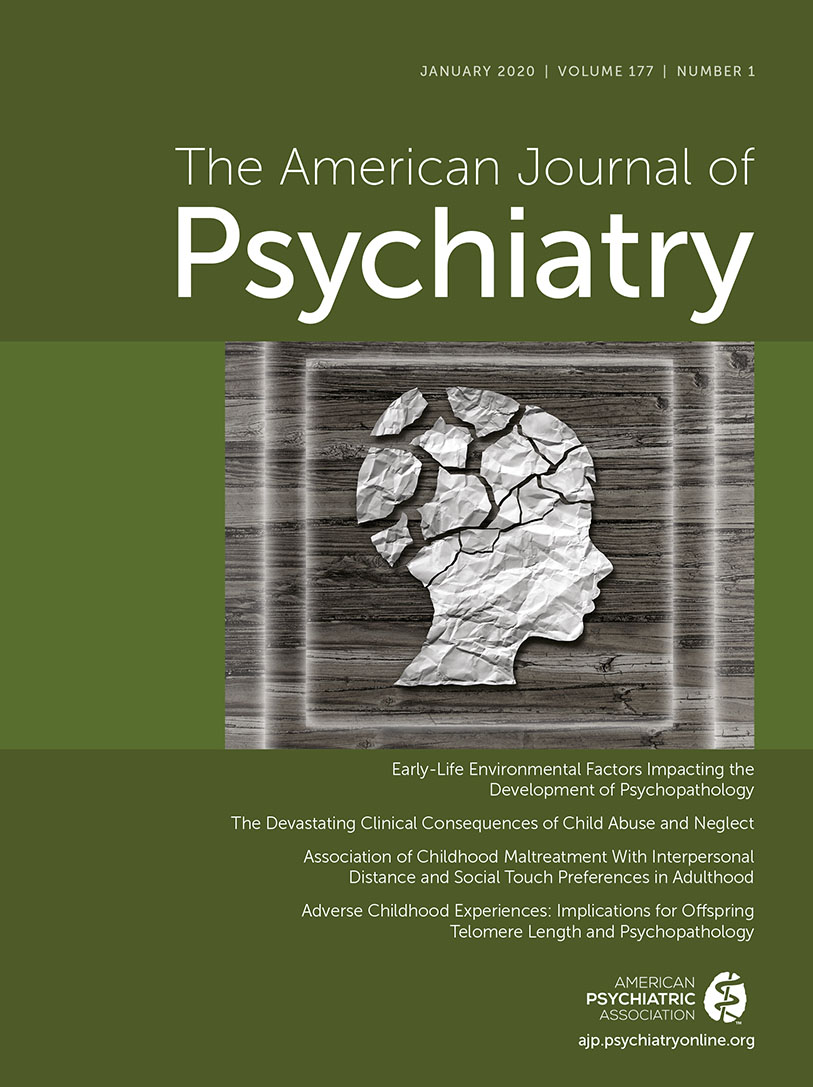More Information Needed to Understand Low Levels of TNFα and IFNγ in Chronic PTSD
To the Editor: I read with great interest the article by Michopoulos and colleagues (1) that is published in this issue of the Journal. In contrast to the a priori hypothesis, concentrations of tumor necrosis factor α (TNFα) and interferon-γ (IFNγ) were lower in patients with chronic posttraumatic stress disorder (PTSD) than in those in the recovery or resilient group. Such unexpected results are welcomed for unbiased reporting of scientific evidence and lively academic discussion. However, I cannot completely agree with the authors’ interpretation of their results. The authors explained that the lower levels of TNFα and IFNγ were a result of the blunted acute immune response and reduced negative feedback by the glucocorticoid receptor. However, both phenomena are closely associated with the altered activity of proinflammatory cytokine interleukin (IL) 1β (2). Although it is natural to wonder why IL-1β has not been altered in the aftermath of trauma, there is no discussion about the possible role of IL-1β in PTSD (1).
To understand the results, more information is needed. In particular, the authors reported that 23 of 28 patients with chronic PTSD already had premorbid interpersonal trauma. As early-life interpersonal trauma is one of the contributing factors for elevated proinflammatory cytokines in adulthood (3), detailed information such as the type, onset, duration, and severity of the premorbid interpersonal trauma is needed. The “yes” or “no” coding alone is of little help in explaining the paradoxical results.
The purpose of the early response of the immune system through cytokines is to eliminate any danger and restore injured tissue (4). Hence, cytokine levels immediately after trauma are inevitably influenced by the physical injuries caused by trauma. Although the authors reported exclusion criteria such as the anticipation of immediate surgery or admission to the intensive care unit, detailed information on the physical aspects of trauma should be provided. If possible, analysis stratified by physical and nonphysical trauma may help us identify why the unexpectedly decreased levels of TNFα and IFNγ were present in patients with chronic PTSD.
1 : Association of prospective risk for chronic PTSD symptoms with low TNFα and IFNγ concentrations in the immediate aftermath of trauma exposure. Am J Psychiatry 2020; 177:58–65Google Scholar
2 : The interleukin-1 family: back to the future. Immunity 2013; 39:1003–1018Crossref, Medline, Google Scholar
3 : Association of elevated cytokines with childhood adversity in a sample of healthy adults. J Psychiatr Res 2013; 47:604–610Crossref, Medline, Google Scholar
4 : Cytokines in patients with polytrauma. Clin Orthop Relat Res 2004; (422):57–65Crossref, Medline, Google Scholar



